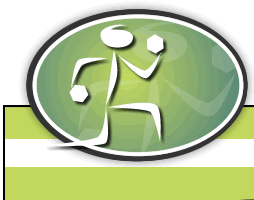

 |
|
Step 1:
Site Search |
||||||||||||||||||||||||||||||||||||||||||||||||||||||||
Passed NSCA CPTby Richard Anantua
Thanks so much for your product. I am writing a review since it was instrumental in my passing the NSCA-CPT exam.
Passed the NSCA exam after two tries
by Janet
I had to take the NSCA exam twice before passing. I just missed the first time but was weak in a few areas. I recommend having some training experience before taking the exam. Maybe start with one of the easier certification programs to help you get a job, and then study for the personal trainer certification from NSCA while you work and earn money.
NSCA exam: program design and metabolic changes
by ryan
I took the computer based NSCA test and if you have taken your time learning the information instead of cramming, you will do better. The practical section was hard because you could only watch the video once and then answer.
Studied NSCA 7 Weeks and Passed!
by Brenda H
I do have a few degrees, but all are unrelated to exercise science. I had also never studied physiology or kinesiology, but I am an instructional designer. To pass this test in a short amount of time, you need a strategy. The information is overwhelming. First, I went to ACTION Certification's Web site and downloaded their study materials and read them. Join in and write your own page! It's easy to do. How? Simply click here to return to NSCA Exam. NSCA cPT exam
by Tom
The NSCA cPT exam is tough but you don't want to be working with clients with special needs and not know what you are doing. Mistakes with these clients can do a lot of damage. I chose the NSCA personal trainer certification because it is so rare and respected in the industry. It was worth the extra studying.
Just passed my CPT exam!
by Becky Clark
I am SO relieved to have passed my NSCA test today on the first try. 87%. It was very hard and very comprehensive. I think the fact that I've worked as a trainer for 10+ years (with ISSA cert) really helped (my degree in graphic design sure didn't LOL). But I don't know that I would've passed as handily (if at all) without the study guides/quizzes from this site. Those really nailed down the items I needed to focus on and gave me the confidence to take the test. Join in and write your own page! It's easy to do. How? Simply click here to return to NSCA Exam. Make exercise technique a priority
by Susan
Study long and hard for the NSCA exam, especially if you have no college degrees after your name. It took the better part of 3 months to absorb all of NSCA's exam prep material, of which I purchased the text book and the complete set of DVD symposiums as well as practice exam vol. one. It was money well spent. Topics to know cold: safety issues, exercise technique and nutritional guidelines such as necessary daily protein, fat, ect. There are lots of scenario questions and many are worded so as to confuse you with superfluous information. I passed on the first try so it's definitely possible. I found very few questions on the structure of a muscle or the sliding-filament theory. Concentrate on client evaluation, program design and common errors in technique and you'll do well. The prep material spends little or no time teaching the proper names of bones and muscles so it's helpful to either look it up online or snag an anatomy book. Good luck!
Passed the NSCA CSCS 1st attempt 01/25/2011
by Will
Hello fellow trainers and trainers-to-be!!
Overstudied! but dont underestimate the NSCA CPT test
by Steve
I just took the NSCA CPT test and passed comfortably. They design the test with safety in mind. Most of the questions pertain to body positioning (i.e. the planes of movement, flexion, abduction, protraction, etc..), ways to make an exercise more or less difficult (which by the way was not covered in the text), some muscle anatomy, and case studies. definitely know when a client needs referral to a professional, when an alarming situation calls for medical attention, and methods of motivation. I know the test always changes, but there is little by way of technical jargon. know the bold and italics for sure, and graze over the rest. More important than anything, I've been exercising for many years, so I understand manipulating body position for the desired effect (pain reduction, ease of motion). Join in and write your own page! It's easy to do. How? Simply click here to return to NSCA Exam. NSCA: Just study until you are absolutely comfortable
I took and passed the NSCA CPT. It was not easy. I feel as if I memorized the book before walking into the exam. Which isn't a bad thing professionally. The good things in life do not come easy but are truly worth the work
|
||||||||||||||||||||||||||||||||||||||||||||||||||||||||
